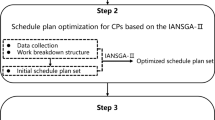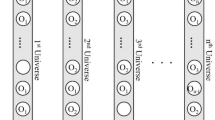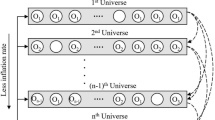Abstract
Optimum solution of time-cost trade-off problem has significant importance since it provides the highest profit opportunity. For this reason, exact, heuristic, and meta-heuristic algorithms are adapted to obtain the optimum or near-optimum solution. However, heuristic algorithms may not always converge into the global optimum, while meta-heuristic algorithms require significant computation to converge into global optimum and exact methods are complex for construction planners to implement. Therefore, minimum cost-slope based fast converging network analysis algorithm, which provides optimum or near-optimum solutions, is proposed for discrete time-cost trade-off problem. The algorithm searches the global optimum through the feasible crashing options. Number of feasible crashing options increase tremendously in large projects. Therefore, an elimination algorithm is embedded to reduce the number of crashing options. The crashing option with the lowest unit crashing cost is executed and global optimum is searched by stepwise crashing. Tests on 18 and 63-Activity projects revealed that the network analysis algorithm converges to optimum or near-optimum solution by only one percent of the computational demand of meta-heuristic algorithms. Consequently, the proposed heuristic algorithm is a convenient optimization method for the solution of time-cost trade-off problem.
Similar content being viewed by others
References
Afruzi, E. N., Najafi, A. A., Roghanian, E., and Mazinani, M. (2014). “A multi-objective imperialist competitive algorithm for solving discrete time, cost and quality trade-off problems with mode-identity and resource-constrained situations.” Computers and Operations Research, Vol. 50, pp. 80–96, DOI: 10.1016/j.cor.2014.04.003.
Al Haj, R. A. and El-Sayegh, S. M. (2015). “Time–cost optimization model considering float-consumption impact.” Journal of Construction Engineering and Management, Vol. 141, No. 5, DOI: 10.1061/(ASCE)CO.1943-7862.0000966.
Ammar, M. A. (2011). “Optimization of project time-cost trade-off problem with discounted cash flows.” Journal of Construction Engineering and Management, Vol. 137, No. 1, pp. 65–71, DOI: 10.1061/(ASCE)CO.1943-7862.0000256.
Anagnostopoulos, K. P. and Kotsikas, L. (2010). “Experimental evaluation of simulated annealing algorithms for the time–cost trade-off problem.” Applied Mathematics and Computation, Vol. 217, No. 1, pp. 260–270, DOI: 10.1016/j.amc.2010.05.056.
Azaron, A., Perkgoz, C., and Sakawa, M. (2005). “A genetic algorithm approach for the time-cost trade-off in PERT networks.” Applied Mathematics and Computation, Vol. 168, No. 2, pp. 1317–1339, DOI: 10.1016/j.amc.2004.10.021.
Babu, A. J. G. and Suresh, N. (1996). “Project management with time, cost, and quality considerations.” European Journal of Operational Research, Vol. 88, No. 2, pp. 320–327, DOI: 10.1016/0377-2217(94) 00202-9.
Barber, T. J. and Boardman, J. T. (1988). “Knowledge–based project control employing heuristic optimisation.” IEE Proceedings, Vol. 135, No. 8, pp. 529–538, DOI: 10.1049/ip-a-1.1988.0083.
Berman, E. B. (1964). “Resource allocation in a PERT network under continuous activity time-cost functions.” Management Science, Vol. 10, No. 4, pp. 734–745, DOI: 10.1287/mnsc.10.4.734.
Bettemir, Ö. H. (2009). Optimization of time-cost-resource trade-off problems in project scheduling using meta-heuristic algorithms, Doctoral dissertation, Middle East Technical University.
Bidhandi, H. M. (2006). “A new approach based on the surrogating method in the project time compression problems.” Annals of Operations Research, Vol. 143, No. 1, pp. 237–250, DOI: 10.1007/s10479-006-7385-y.
Cha, H. S. and Lee, D. G. (2015). “A case study of time/cost analysis for aged-housing renovation using a pre-made BIM database structure.” KSCE Journal of Civil Engineering, Vol. 19, No. 4, pp. 841–852.
Chen, S. P. and Tsai, M. J. (2011). “Time–cost trade-off analysis of project networks in fuzzy environments.” European Journal of Operational Research, Vol. 212, No. 2, pp. 386–397, DOI: 10.1016/j.ejor.2011.02.002.
Cheng, M. Y. and Tran, D. H. (2016). “An efficient hybrid differential evolution based serial method for multimode resource-constrained project scheduling.” KSCE Journal of Civil Engineering, Vol. 20, No. 1, pp. 90–100.
Chiu, Y. S. P. and Chiu S. W. (2005). “Incorporating expedited time and cost of the end product into the product structure diagram.” International Journal of Machine Tools and Manufacture, Vol. 45, No. 7, pp. 987–991, DOI: 10.1016/j.ijmachtools.2004.10.015.
De, P., Dunne, E. J., Ghosh, J. B., and Wells, C. E. (1995). “The discrete time-cost tradeoff problem revisited.” European Journal of Operational Research, Vol. 81, No. 2, pp. 225–238, DOI: 10.1016/0377-2217(94) 00187-H.
De, P., Dunne, E. J., Ghosh, J. B., and Wells, C. E. (1997). “Complexity of the discrete time-cost tradeoff problem for project networks.” Operations Research, Vol. 45, No. 2, pp. 302–306, DOI: 10.1287/opre.45.2.302.
Demeulemeester, E. L., Herroelen, W. S., and Elmaghraby, S. E. (1996). “Optimal procedures for the discrete time/cost trade-off problem in project networks.” European Journal of Operational Research, Vol. 88, No. 1, pp. 50–68, DOI: 10.1016/0377-2217(94)00181-2.
Demeulemeester, E., de Reyck, B., Foubert, B., Herroelen, W., and Vanhoucke, A. M. (1998). “New computational results on the discrete time/cost trade-off problem in project networks.” Journal of the Operational Research Society, Vol. 49, No. 11, pp. 1153–1163, DOI: 10.2307/3010096.
Elazouni, A. M. and Metwally, F. G. (2007). “Expanding finance-based scheduling to devise overall-optimized project schedules.” Journal of Construction Engineering and Management, Vol. 133, No. 1, pp. 86–90.
Elbeltagi, E., Hegazy, T., and Grierson, D. (2005). “Comparison among five evolutionary-based optimization algorithms.” Advanced Engineering Informatics, Vol. 19, No. 1, pp. 43–53, DOI: 10.1016/j.aei.2005.01.004.
Eshtehardian, E., Afshar, A., and Abbasnia, R. (2009). “Fuzzy-based MOGA approach to stochastic time–cost trade-off problem.” Automation in Construction, Vol. 18, No. 5, pp. 692–701, DOI: 10.1016/j.autcon.2009.02.001.
Falk, J. E. and Horowitz, J. L. (1972). “Critical path problems with concave cost-time curves.” Management Science, Vol. 19, No. 4-part-1, pp. 446–455, DOI: 10.1287/mnsc.19.4.446.
Fathi, H. and Afshar, A. (2010). “GA-based multi-objective optimization of finance-based construction project scheduling.” KSCE Journal of Civil Engineering, Vol. 14, No. 5, pp. 627–638.
Feng, C. W., Liu, L., and Burns, S. A. (1997). “Using genetic algorithms to solve construction time-cost trade-off problems.” Journal of Computing in Civil Engineering, Vol. 11, No. 3, pp. 184–189, DOI: 10.1061/(ASCE)0887-3801(1997)11:3(184).
Fulkerson, D. R. (1961). “A network flow computation for project cost curves.” Management Science, Vol. 7, No. 2, pp. 167–178, DOI: 10.1287/mnsc.7.2.167.
Geem, Z. W. (2010). “Multiobjective optimization of time-cost trade-off using harmony search.” Journal of Construction Engineering and Management, Vol. 136, No. 6, pp. 711–716, DOI: 10.1061/(ASCE) CO.1943-7862.0000167.
Ghoddousi, P., Eshtehardian, E., Jooybanpour, S., and Javanmardi, A. (2013). “Multi-mode resource-constrained discrete time–cost-resource optimization in project scheduling using non-dominated sorting genetic algorithm.” Automation in Construction, Vol. 30, pp. 216–227, DOI: 10.1016/j.autcon.2012.11.014.
Goyal, S. K. (1996). “A simple time-cost tradeoff algorithm.” Production Planning and Control, Vol. 7, No. 1, pp. 104–106, DOI: 10.1080/09537289608930331.
Goyal, S. K. (1975). “A note on a simple CPM time-cost tradeoff algorithm.” Management Science, Vol. 21, No. 6, pp. 718–722, DOI: 10.1287/mnsc.21.6.718.
Hazr, Ö., Haouari, M., and Erel, E. (2010a). “Discrete time/cost tradeoff problem: A decomposition-based solution algorithm for the budget version.” Computers and Operations Research, Vol. 37, No. 4, pp. 649–655, DOI: 10.1016/j.cor.2009.06.009.
Hazir, Ö., Haouari, M., and Erel, E. (2010b). “Robust scheduling and robustness measures for the discrete time/cost trade-off problem.” European Journal of Operational Research, Vol. 207, No. 2, pp. 633–643, DOI: 10.1016/j.ejor.2010.05.046.
Hegazy, T. (1999a). “Optimization of construction time-cost trade-off analysis using genetic algorithms.” Canadian Journal of Civil Engineering, Vol. 26, No. 6, pp. 685–697, DOI: 10.1139/l99-031.
Hegazy, T. (1999b). “Optimization of resource allocation and leveling using genetic algorithms.” Journal of Construction Engineering and Management, Vol. 125, No. 3, pp. 167–175, DOI: 10.1061/(ASCE) 0733-9364(1999)125:3(167).
Kalhor, E., Khanzadi, M., Eshtehardian, E., and Afshar, A. (2011). “Stochastic time–cost optimization using non-dominated archiving ant colony approach.” Automation in Construction, Vol. 20, No. 8, pp. 1193–1203, DOI: 10.1016/j.autcon.2011.05.003.
Ke, H., Ma, W., and Ni, Y. (2009). “Optimization models and a GAbased algorithm for stochastic time-cost trade-off problem.” Applied Mathematics and Computation, Vol. 215, No. 1, pp. 308–313, DOI: 10.1016/j.amc.2009.05.004.
Kelley, J. E. and Walker, M. R. (1959). “Critical-path planning and scheduling.” In Proc. of eastern joint IRE-AIEE-ACM computer conference Association for Computing Machinery December 1-3, 1959, Vol. 1, pp. 160–173.
Kelley, J. E. (1961). “Critical-path planning and scheduling: Mathematical basis.” Operations Research, Vol. 9, No. 3, pp. 296–320, DOI: 10.1287/opre.9.3.296.
Khang, D. B. and Myint, Y. M. (1999). “Time, cost and quality trade-off in project management: A case study.” International Journal of Project Management, Vol. 17, No. 4, pp. 249–256, DOI: 10.1016/S0263-7863(98)00043-X.
Kim, J., Kang, C., and Hwang, I. (2012). “A practical approach to project scheduling: considering the potential quality loss cost in the time–cost tradeoff problem.” International Journal of Project Management, Vol. 30, No. 2, pp. 264–272, DOI: 10.1016/j.ijproman. 2011.05.004.
Koo, C., Hong, T., and Kim, S. (2015). “An integrated multi-objective optimization model for solving the construction time-cost trade-off problem.” Journal of Civil Engineering and Management, Vol. 21, No. 3, pp. 323–333, DOI: 10.3846/13923730.2013.802733.
Lee, H. S., Roh, S., Park, M. S., and Ryu, H. G. (2010). “Optimal option selection for finishing works of high-rise building.” KSCE Journal of Civil Engineering, Vol. 14, No. 5, pp. 639–651.
Leu, S. S., Chen, A. T., and Yang, C. H. (2001). “A GA-based fuzzy optimal model for construction time–cost trade-off.” International Journal of Project Management, Vol. 19, No. 1, pp. 47–58, DOI: 10.1016/S0263-7863(99)00035-6.
Li, H., Cao, J. N., and Love, P. E. D. (1999). “Using machine learning and GA to solve time-cost trade-off problems.” Journal of Construction Engineering and Management, Vol. 125, No. 5, pp. 347–353, DOI: 10.1061/(ASCE)0733-9364(1999)125:5(347).
Li, C. and Wang, K. (2009). “The risk element transmission theory research of multi-objective risk-time-cost trade-off.” Computers and Mathematics with Applications, Vol. 57, No. 11, pp. 1792–1799, DOI: 10.1016/j.camwa.2008.10.051.
Liberatore, M. J. and Pollack-Johnson, B. (2006). “Extending project time–cost analysis by removing precedence relationships and task streaming.” International Journal of Project Management, Vol. 24, No. 6, pp. 529–535, DOI: 10.1016/j.ijproman.2006.04.004.
Liu, L., Burns, S. A., and Feng, C. W. (1995). “Construction time-cost trade-off analysis using LP/IP hybrid method.” Journal of Construction Engineering and Management, Vol. 121, No. 4, pp. 446–454, DOI: 10.1061/(ASCE)0733-9364(1995)121:4(446).
Liu, S. S. and Wang, C. J. (2008). “Resource-constrained construction project scheduling model for profit maximization considering cash flow.” Automation in Construction, Vol. 17, No. 8, pp. 966–974, DOI: 10.1016/j.autcon.2008.04.006.
Monghasemi, S., Nikoo, M. R., Fasaee, M. A. K., and Adamowski, J. (2015). “A novel multi criteria decision making model for optimizing time–cost–quality trade-off problems in construction projects.” Expert Systems with Applications, Vol. 42, No. 6, pp. 3089–3104, DOI: 10.1016/j.eswa.2014.11.032.
Moussourakis, J. and Haksever, C. (2004). “Flexible model for time/cost tradeoff problem.” Journal of Construction Engineering and Management, Vol. 130, No. 3, pp. 307–314, DOI: 10.1061/(ASCE) 0733-9364(2004)130:3(307).
Moussourakis, J. and Haksever, C. (2007). “Models for accurate computation of earliest and latest start times and optimal compression in project networks.” Journal of Construction Engineering and Management, Vol. 133, No. 8, pp. 600–608, DOI: 10.1061/(ASCE) 0733-9364(2007)133:8(600).
Mungle, S., Benyoucef, L., Son, Y. J., and Tiwari, M. K. (2013). “A fuzzy clustering-based genetic algorithm approach for time–cost–quality trade-off problems: A case study of highway construction project.” Engineering Applications of Artificial Intelligence, Vol. 26, No. 8, pp. 1953–1966, DOI: 10.1016/j.engappai.2013.05.006.
Ng, S. T. and Zhang, Y. (2008). “Optimizing construction time and cost using ant colony optimization approach.” Journal of Construction Engineering and Management, Vol. 134, No. 9, pp. 721–728, DOI: 10.1061/(ASCE)0733-9364(2008)134:9(721).
Pathak, B. K. and Srivastava, S. (2014). “Integrated ANN-HMH approach for nonlinear time-cost tradeoff problem.” International Journal of Computational Intelligence Systems, Vol. 7, No. 3, pp. 456–471, DOI: 10.1080/18756891.2014.891368.
Rogalska, M., Boejko, W., and Hejducki, Z. (2008). “Time/cost optimization using hybrid evolutionary algorithm in construction project scheduling.” Automation in Construction, Vol. 18, No. 1, pp. 24–31, DOI: 10.1016/j.autcon.2008.04.002.
Rostami, M., Moradinezhad, D., and Soufipour, A. (2014). “Improved and competitive algorithms for large scale multiple resourceconstrained project-scheduling problems.” KSCE Journal of Civil Engineering, Vol. 18, No. 5, pp. 1261–1269.
Said, S. S. and Haouari, M. (2015). “A hybrid simulation-optimization approach for the robust Discrete Time/Cost Trade-off Problem.” Applied Mathematics and Computation, Vol. 259, pp. 628–636, 10.1016/j.amc.2015.02.092.
Sakellaropoulos, S. and Chassiakos, A. P. (2004). “Project time–cost analysis under generalised precedence relations.” Advances in Engineering Software, Vol. 35, No. 10, pp. 715–724, DOI: 10.1016/j.advengsoft.2004.03.017.
Schwarze, J. (1980). “An algorithm for hierarchical reduction and decomposition of a directed graph.” Computing, Vol. 25, No. 1, pp. 47–57, DOI: 10.1007/BF02243881.
Siemens, N. (1971). “A Simple CPM Time-Cost trade off algorithm.” Management Science, Vol. 17, No. 6, pp. B354–B363, DOI: 10.1287/mnsc.17.6.B354.
Siemens, N. and Gooding, C. (1975). “Reducing project duration at minimum cost: A time-cost tradeoff algorithm.” Omega, Vol. 3, No. 5, pp. 569–581, DOI: 10.1016/0305-0483(75)90030-4.
Son, J., Hong, T., and Lee, S. (2013). “A mixed (continuous+ discrete) time-cost trade-off model considering four different relationships with lag time.” KSCE Journal of Civil Engineering, Vol. 17, No. 2, pp. 281–291, DOI: 10.1007/s12205-013-1506-3.
Sonmez, R. and Bettemir, Ö. H. (2012). “A hybrid genetic algorithm for the discrete time–cost trade-off problem.” Expert Systems with Applications, Vol. 39, No. 13, pp. 11428–11434, DOI: 10.1016/j.eswa.2012.04.019.
Tareghian, H. R., and Taheri, S. H. (2006). “On the discrete time, cost and quality trade-off problem.” Applied Mathematics and Computation, Vol. 181, No. 2, pp. 1305–1312, DOI: 10.1016/j.amc.2006.02.029.
Tavana, M., Abtahi, A. R., and Khalili-Damghani, K. (2014). “A new multi-objective multi-mode model for solving preemptive time–cost–quality trade-off project scheduling problems.” Expert Systems with Applications, Vol. 41, No. 4, pp. 1830–1846, DOI: 10.1016/j.eswa.2013.08.081.
Vanhoucke, M. (2005). “New computational results for the discrete time/cost trade-off problem with time-switch constraints.” European Journal of Operational Research, Vol. 165, No. 2, pp. 359–374, DOI: 10.1016/j.ejor.2004.04.007.
Vanhoucke, M. and Debels, D. (2007). “The discrete Time/Cost trade off problem: Extensions and heuristic procedures.” Journal of Scheduling, Vol. 10, Nos. 4-5, pp. 311–326, DOI: 10.1007/s10951-007-0031-y.
Xu, J., Zheng, H., Zeng, Z., Wu, S., and Shen, M. (2012). "Discrete time–cost–environment trade-off problem for large-scale construction systems with multiple modes under fuzzy uncertainty and its application to Jinping-II Hydroelectric Project.” International Journal of Project Management, Vol. 30, No. 8, pp. 950–966, DOI: 10.1016/j.ijproman.2012.01.019.
Yang, I. T. (2005). “Chance-constrained time–cost tradeoff analysis considering funding variability.” Journal of Construction Engineering and Management, Vol. 131, No. 9, pp. 1002–1012, DOI: 10.1061/(ASCE)0733-9364(2005)131:9(1002).
Yang, I. T. (2007). “Using elitist particle swarm optimization to facilitate bicriterion time-cost trade-off analysis.” Journal of Construction Engineering and Management, Vol. 133, No. 7, pp. 498–505, DOI: 10.1061/(ASCE)0733-9364(2007)133:7(498).
Yang, I. T. (2011). “Stochastic time–cost tradeoff analysis: A distributionfree approach with focus on correlation and stochastic dominance.” Automation in Construction, Vol. 20, No. 7, pp. 916–926, DOI: 10.1016/j.autcon.2011.03.008.
Zhang, H. and Xing, F. (2010). “Fuzzy-multi-objective particle swarm optimization for time–cost–quality tradeoff in construction.” Automation in Construction, Vol. 19, No. 8, pp. 1067–1075, DOI: 10.1016/j.autcon.2010.07.014.
Zhang, Y. and Thomas Ng, S. (2012). “An ant colony system based decision support system for construction time-cost optimization.” Journal of Civil Engineering and Management, Vol. 18, No. 4, pp. 580–589, DOI: 10.3846/13923730.2012.704164.
Zheng, D. X., Ng, S. T., and Kumaraswamy, M. M. (2004). “Applying a genetic algorithm-based multiobjective approach for time-cost optimization.” Journal of Construction Engineering and Management, Vol. 130, No. 2, pp. 168–176, DOI: 10.1061/(ASCE)0733-9364 (2004)130:2(168).
Zheng, D. X., Ng, S. T., and Kumaraswamy, M. M. (2005). “Applying Pareto ranking and niche formation to genetic algorithm-based multiobjective time–cost optimization.” Journal of Construction Engineering and Management, Vol. 131, No. 1, pp. 81–91, DOI: 10.1061/(ASCE)0733-9364(2005)131:1(81).
Zheng, D. X. and Ng, S. T. (2005). “Stochastic time–cost optimization model incorporating fuzzy sets theory and nonreplaceable front.” Journal of Construction Engineering and Management, Vol. 131, No. 2, pp. 176–186, DOI: 10.1061/(ASCE)0733-9364(2005)131:2(176).
Author information
Authors and Affiliations
Corresponding author
Rights and permissions
About this article
Cite this article
Bettemir, Ö.H., Talat Birgönül, M. Network analysis algorithm for the solution of discrete time-cost trade-off problem. KSCE J Civ Eng 21, 1047–1058 (2017). https://doi.org/10.1007/s12205-016-1615-x
Received:
Revised:
Accepted:
Published:
Issue Date:
DOI: https://doi.org/10.1007/s12205-016-1615-x




